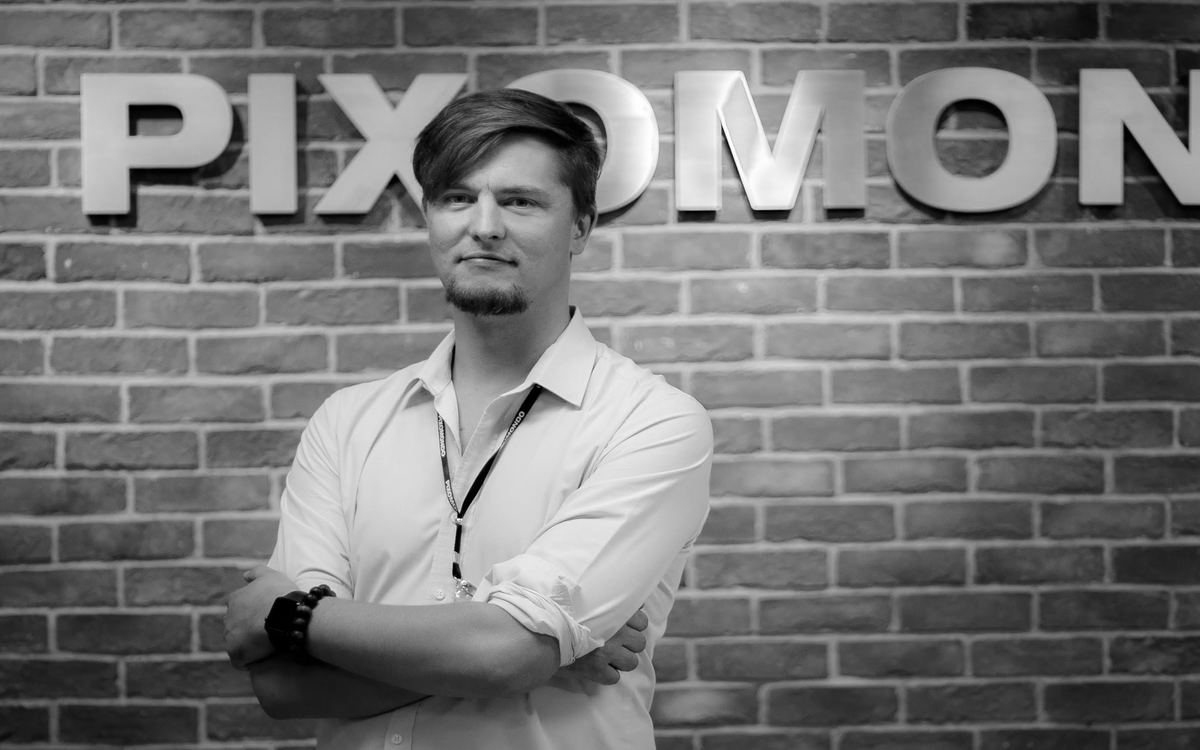- German executive arrived in China in 2009 and has no plans to leave anytime soon
- Says new money has vast effect on the Chinese film and domestic visual effects industry
- Believes science fiction films are going to be a big part of China’s future media landscape

When Jan Heinze, chief operating officer of Pixomondo, a global special effects company, first came to China in 2009, he expected to stay for just three months. Seven years later, the native of Germany says he’s still excited about working in the Chinese market and has no plans to leave anytime soon.
Heinze talked with China Film Insider about the effect vast amounts of new money is having on the Chinese film industry, the state of the domestic visual effects industry, and what the prospects for science fiction films are in the country.
Company: PIXOMONDO
Founded: 2001
CEO: Thilo Kuther
Ownership: 100% Founder-Owned
Headquarters: Decentralized Structure
Offices: Los Angeles, Beijing, Shanghai, Stuttgart, Frankfurt, Toronto, Vancouver
Employees: ~ 500
Specialities: Visual Development and High-End VFX Production for Feature Films, TV, Themed Entertainment, Virtual Reality and Commercials
Film projects: Hugo, Star Trek Into Darkness, Gone With The Bullets (一步之遥), Wolf Totem (狼图腾), Bridge of Spies, Furious 7, Lost in Hong Kong (港囧), Impossible (不可思异), Oblivion, 2012
Web site: www.pixomondo.com
There’s a lot of money flowing into the Chinese film market at the moment. How is that affecting the industry?
We see a lot of investments going into the film industry. A lot of money is coming from investors who have no experience in the media sector. Often they try to establish their own development units, production companies, or simply give their money to sometimes inexperienced directors or producers instead of investing it in established players. This has led to an incredible amount of new projects and players in the market.
A lot of these investors are looking for fast returns and often invest in underdeveloped projects that are pushed into production too early. In a long run this might lead to a lot of frustrations when investors realize that it’s not that easy to make good movies or to create successful intellectual properties (IPs). Not to mention making money with it.
If I have learned one thing in China then it’s that any generalization about the market is wrong. It is simply too fragmented and developing too fast – So the problem I just described does not apply to the market in general. It’s just one aspect of a complex development but it will have some effects.
The market will be cleaning itself very fast and there are already a lot of production companies, producers, and directors who very much understand that good content or successful IPs need time for development and that rushing does not help the product. They are in the game for the long run, not for fast profits.
These filmmakers are looking for ways to develop content and IP in a more rational way and without betting too much on individual talent only. Creating a healthy balance between the creative and the business side will be the key to their success. Right now the trend is clearly the development of content based on existing IP like novels, games, etc. but I am confident that we will also see more and more original content.
For those filmmakers we created our new PixoLab. We involve ourselves already in the development phase. With a focus on visual development for characters and worlds and also the early previsualization of the movie, we can help to improve storytelling and make sure that also investors understand what they are spending their money for.
We can’t solve all problems but we can contribute to improving the processes by making them more transparent and visual. We are still figuring how it will work but we already have some great partners who really appreciate our efforts and work closely with us on some great projects.
So has it meant that over time you have identified the sort of clients who you consider more dependable?
We have to distinguish between clients we can depend on as a source of continuous work (what is really important for VFX companies to stay alive in a low-margin industry) and reliable clients in general.
In the U.S., most VFX companies rely on the six big studios who are continuously producing high quality movies with lots of VFX as their major source of revenue. These kind of studios do not exist in China yet. The Chinese “studios” leave a lot of control over VFX to the production companies they collaborate with and these production companies usually do not have a big enough slate of movies in production to keep a VFX company busy.
The market is still very fragmented and you have to work much more on developing relationships with individuals who will soon work elsewhere, than relying on studio relationships.
Everyone knows that doing business in China as a Western company is difficult and whoever is coming to China for quick money will usually leave after a very short time. It’s a market in a gold rush state. There are lots of opportunities but also dangers if you bet on the wrong partners or projects.
Maybe we have been lucky but looking back I must say that our overall experience with clients in China has been very positive.
Indeed, projects face challenges, are postponed, delayed, or even canceled. So far we had two bad and potentially threatening experiences in almost seven years and on almost 20 feature films in China. That’s really not bad – filmmaking and VFX is after all a really difficult business. If you come to China and expect the same business practices as in the U.S. you will fail and get frustrated. The market is still new, sometimes chaotic. There are no standards and best practices so you have to work hard and be pro-active to make a project work.
On a very positive note I can recall four occasions in which clients completely paid us before we delivered the finals – without even being asked. This wouldn’t happen in the U.S. or Europe. In the end it’s all about relationships with the filmmakers and if you succeed to build up trust and deliver good work you can rely on most clients as much as they rely on you.
How would you describe the state of visual effects in China? Are there any Chinese companies in this space that you would regard as being sort-of world class yet?
To produce world-class visual effects, you need a world-class movie production environment. Visual effects can not be separated from the rest of the filmmaking process and the Chinese VFX industry is evolving with its market.
China has incredibly talented and hard-working visual effects artists. I am again and again surprised by what our local team can pull off. The industry is still young so there is not much senior talent here. We often have to compensate that by flying in leads and supervisors but that will change. It simply takes some time and the Chinese artists need experience on world-class productions in order to grow. They have to and they want to be challenged.
That said, it’s really sad to see that some of the producers who now have the budgets to afford quality work would leave China to get it done elsewhere, simply because they lost confidence and trust in the Chinese VFX industry. And in fact there are probably a handful of smaller and bigger VFX companies in China who really work hard on raising the bar for VFX made in China and they have proven that they can produce some fantastic work if they get the chance.
I actually see one of the biggest challenges for the Chinese VFX industry is that they need to catch up on the business and project management side. Bad business deals and practices are one of the reasons why we see so much bad VFX being produced in China.
There are big problems on both sides, the producers and the VFX companies.
A lot of producers have little experience in VFX and how to deal with VFX companies and do not hire experienced VFX producers or supervisors to help them. They often do not provide sufficient information or briefs that would make it possible for vendors to come up with comparable bids. Often they are happy to get a good-looking flat deal and simply compare the numbers instead of asking the right questions. However, they usually get surprised by additional costs in post-production, or even worse, bad work that might harm their movies because assumptions were too optimistic. The budget is usually spent at this point to really turn it around. VFX, as any other discipline, requires good planning to be successful.
On the other side the management of most VFX companies has little knowledge about the filmmaking process. They try to get the job to grow fast or to satisfy their investors and they often take more than they actually can digest.
Again, this does not apply to all producers and VFX companies but it’s a fact we need to consider looking at the market.
We often find ourselves in situations where we have to let go because it would not be possible to compete and deliver a good product. As hard as this is for a VFX company, you have to see it as a long-term investment to lose a job. Most clients who get burned by other companies will come back if you were honest and transparent to them. Again, it’s simply a matter of making experiences and producers in China learn incredibly fast.
We often try to convince clients we haven’t worked with before to either hire an experienced independent supervisor or simply take it slow by first contracting some pre-production or development work. This gives both parties chances to “date for some time before getting married.” In the end we want to work as partners and not just as a service vendor.
Do you see the sci-fi genre becoming bigger in China? It seems to be the generally accepted view that science fiction films don’t really get off the ground in China due to censorship.
I very much believe that sci-fi will play an important role in the Chinese media industry in the future. Not just for movies. There are already great examples of foreign movies that found a big audience here, but it will take some time for the Chinese audience to get used to sci-fi made in China. But with more and more scientific and technological innovations – including space exploration – in China, more people will dream about the opportunities and the effect of science and technology on their life.
I once heard a director on a sci-fi forum say that he could not imagine an alien speaking Chinese. Sci-fi is a very wide genre and certainly more than talking aliens. Successful books like The Three Body Problem prove that even complex stories based on science and fiction can find a wide audience if they relate to the people in China.





